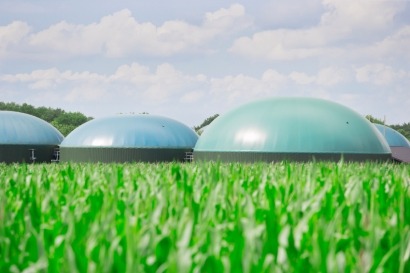
The Abu Dhabi Fund for Development, which pledged $350 million in 2009 as part of the United Arab Emirates bid to host the Agency, is aimed at supporting and strengthening the mission of IRENA to promote the widespread and increased adoption and the sustainable use of renewable energy. This new and additional financing mechanism will support projects of strategic importance for developing countries in order to promote growth and sustainable development, though the deployment of renewable energy technologies.
IRENA is encouraging developing countries to present innovative project proposals that can contribute to the cost-effective promotion of renewable energy, energy access and national development with the potential for regional or global replication. The process for submission of project proposals will be soon available on the IRENA website.
Highlighting the importance of increased engagement and investment in the field of renewable energy, IRENA Director-General Adnan Z. Amin noted that “significant investments are required to support the increased deployment of renewable energy. IRENA is joining hands with the ADFD to support projects of strategic importance for developing countries through the provision of soft loans and concessional financing in order to pave the way to a sustainable energy future, based on renewable energy.”
Dr Sultan Ahmed Al Jaber, Chief Executive of Masdar and UAE Special Envoy for Energy and Climate Change said: “I would like to commend ADFD for supporting IRENA in delivering on its mandate and enabling it to encourage the implementation of renewable energy projects in developing countries. The UAE has a long history of supporting development projects around the world and this new fund will expand its support to include renewable energy. This further highlights Abu Dhabi’s commitment to universal access to sustainable energy.”
The announcement of this funding at the Rio+20 Conference highlights the importance of joining international efforts on all levels to promote the use of renewable energy in developing countries as a way to eradicate poverty. Accordingly, qualified projects will also respond to higher level objectives, such as the Millennium Development Goals and the SE4All.
CaDRE: diagnosing renewable energy gaps
Meanwhile, IRENA has teamed up with the Clean Energy Ministerial Multilateral Working Group on Solar and Wind Energy Technologies, the partnership of the Deutsche Gesellschaft für Internationale Zusammenarbeit (GIZ) GmbH, the Instituto para la Diversificación y Ahorro de la Energía (IDAE) and the National Renewable Energy Laboratory (NREL) to elaborate the Capacity Needs Diagnostics for Renewable Energies (CaDRE): a tool which should help countries define where their renewable energy needs lie.
CaDRE will provide governments with the process and tools necessary to undertake an analysis of the current capacity of their renewable energy industry, and thereby identify the gaps and areas which need to be addressed to support the further deployment of renewable energy.
The successful development of renewable energy is dependent on the existence of institutional and individual capacity to enable it. Capacity is required across all levels including the system level, the organisation level, and at the individual level. The system level requires capacity within its policy framework and business environment which will enable the deployment of renewable energy. To utilise this system level capacity requires organisations and institutions with the ability to effectively and efficiently fulfil their mandates with regard to renewable energy deployment. In turn this is built on the capacity of the available personnel that must possess the latest knowledge of the technical and managerial issues related to renewable energy. For the long term sustainability of the sector it is also important to consider the capacity of the current and future direct workforce, and the necessity of establishing networks and platforms for further industry development.
CaDRE has been designed to allow countries to assess the capacity gaps and needs within their own renewable energy sector. Implementing a CaDRE assessment involves a Handbook outlining the systematic process, and a Toolbox to utilise during the assessment. CaDRE’s guidelines are modular, and the tools are user friendly, allowing countries to choose and apply the method best suited to their conditions and to suit the assessment they wish to undertake. The final result is a comprehensive and informative analysis of the national capacities related to the deployment of renewable energy technologies.
For additional information:

